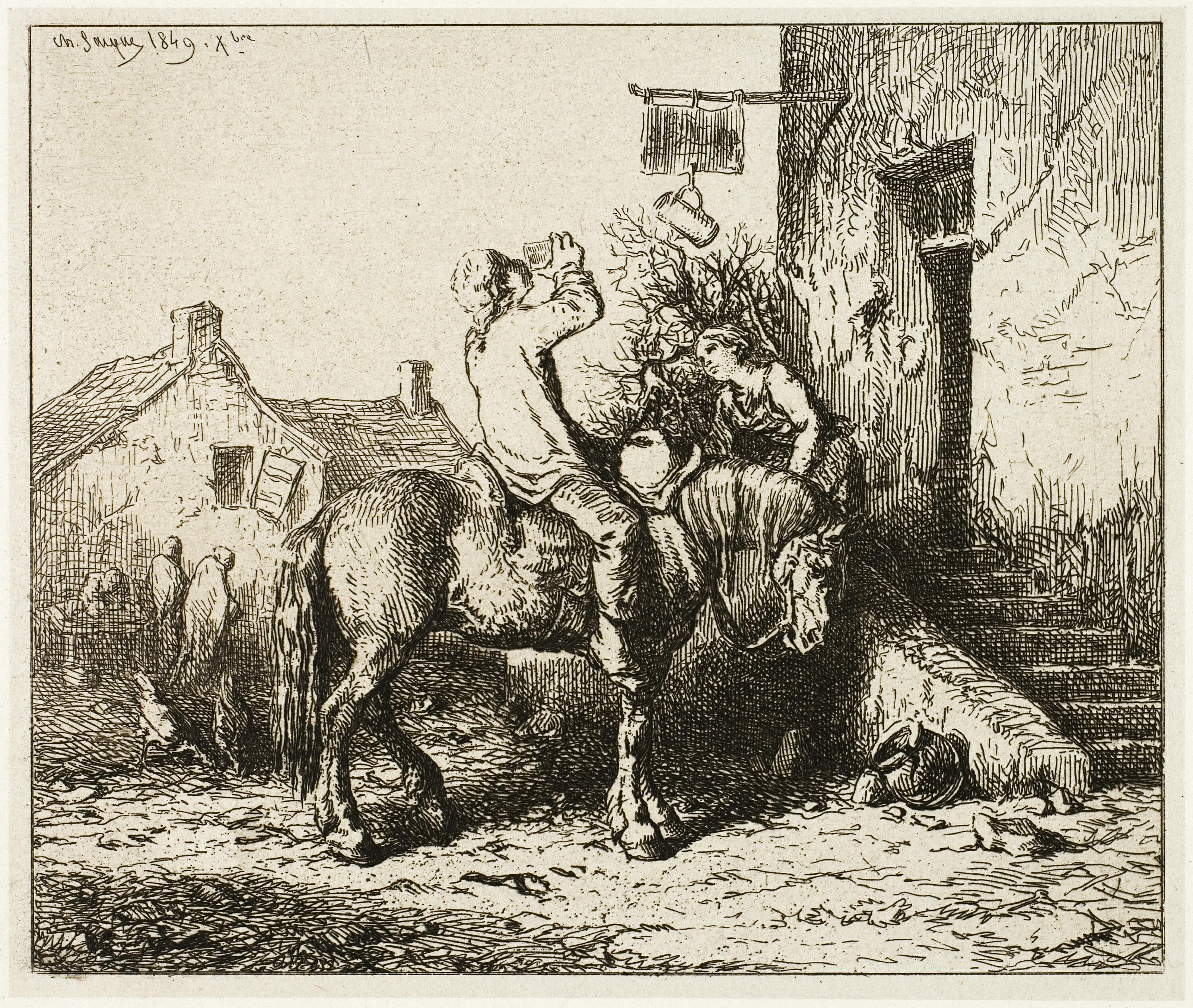Estrangement

Charles Émile Jacque:
Entrance to an Inn, with Peasant Drinking (1849)
"We remain related regardless …"
What can I say about Estrangement? It seems the strangest form of human engagement, for it can only exist between people who were once rather tightly connected. Strangers can never become estranged; only friends and family can. Usually, something happens or was said to occur before becoming a legend, a defining event, or a Rubicon crossed. The memory might have never captured the offense, but it will never forget the occurrence. Over time, the relationship will seem irreparable, and the principles involved accept this and move on. "On to where?" might be the operant question. It might have seemed slight to one of the parties, but the effect will become tectonic for both. An absence appears by mutual consent, and people move on with their lives, disappointed with how that one point turned out, yet powerless to make it different. The experience gets filed under Regrets but will never be understood in the same way or entirely forgotten by either party.
We read of Prodigal Sons and more distant relatives reconnecting after lengthy separations. Sons tend to leave home eventually, even on the best of terms. They must! Sometimes, a tussle provides the cover for a cord long past needing cutting to finally get cut. All parties recognize the necessity and the underlying Kabuki, that everybody was stuck in a role not entirely of their choosing. They performed like professionals, though, carrying out an essential function in every family: sacred separation. The distance, originally intended to be safe, might accidentally overstep its boundaries to where that son cannot quite bear to come home again and separate lives subsume other possibilities. When they cannot return home for Christmas, the fates seem to have passed judgment.
Estrangements sometimes begin with everyone disengaging, convinced that with some time, "they" will probably snap out of it. I meant it when I told my grand-niece that her belief in Qanon was well beneath her. I had not suspected that it wasn't beneath her at all, that she had become convinced that our President had long been a pedophile. As evidence, she sent a short video of him with his hand on his granddaughter's shoulder. We later learned we were not supposed to be told she'd had a baby. Last I heard, she'd moved her family to an undisclosed rural location where they could peacefully shoot their AR15s whenever they pleased. I showed up at her grandfather's funeral and later learned that my grand-niece noticed my presence with appreciation. (Uncle David's here!) I slinked out the side door without pausing to greet the bereaved family due to Estrangement.
It remains a great mystery to me how we engage in such disconnected ways. We cannot, however vehemently we might wish, ever divorce from family, and even ex-spouses tend to be more present than we ever imagined they would become. We remain mysteriously connected; however otherwise we might insist. Of all the powers fueling Estrangement, ethics and morals contribute the most. We mount our higher horses to await another catching on and coming around. Two parties separated by ethical or moral differences constitute the more irreconcilable of distances because to close that gap requires an unethical or immoral act. How dare that other insist I sin to preserve our terms and conditions!
A lot of vehement "God damns" get invoked near the start of an Estrangement, though it's never actually God damning anyone or anything. God doesn't do damns, only blessings! Some believe that we are the God we worship and the one we curse, first a holy misattribution, later the supposed crown of all creation. In truth, we most likely first bless or condemn ourselves from whomever we seek absolution or damnation. We seek distance first and only come to question its necessity later. We pray to that same strange deity for a cessation of hostilities but cannot always seem to achieve this. We make the most vehement war on friends and family; more vicious than on enemies. We can tell they're family because we didn't choose them and might not have chosen them had we been given that option. Estrangement occurs as if one had been granted the power to choose different after inheriting their future. We remain related regardless of whether we acknowledge each other's presence.
©2023 by David A. Schmaltz - all rights reserved


